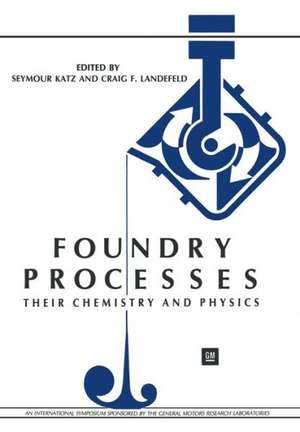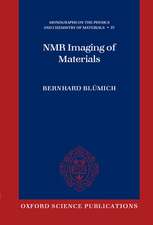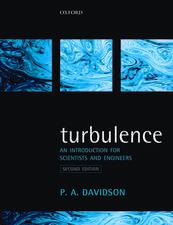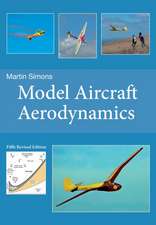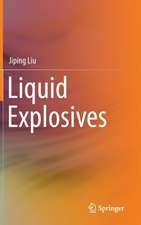Foundry Processes: Their Chemistry and Physics
Autor Seymour Katzen Limba Engleză Paperback – 12 dec 2011
Preț: 406.42 lei
Nou
Puncte Express: 610
Preț estimativ în valută:
77.78€ • 81.10$ • 64.64£
77.78€ • 81.10$ • 64.64£
Carte tipărită la comandă
Livrare economică 20 martie-03 aprilie
Preluare comenzi: 021 569.72.76
Specificații
ISBN-13: 9781461282921
ISBN-10: 1461282926
Pagini: 540
Ilustrații: XII, 526 p.
Dimensiuni: 170 x 244 x 28 mm
Greutate: 0.85 kg
Ediția:Softcover reprint of the original 1st ed. 1988
Editura: Springer Us
Colecția Springer
Locul publicării:New York, NY, United States
ISBN-10: 1461282926
Pagini: 540
Ilustrații: XII, 526 p.
Dimensiuni: 170 x 244 x 28 mm
Greutate: 0.85 kg
Ediția:Softcover reprint of the original 1st ed. 1988
Editura: Springer Us
Colecția Springer
Locul publicării:New York, NY, United States
Public țintă
ResearchCuprins
Session I: Fundamentals.- Paper 1 A Critical Overview of Liquids Metal Processing in the Foundry.- Paper 2 Physicochemical Phenomena of Mechanisms and Rates of Reactions in Melting, Refining, and Casting of Foundry Irons.- Paper 3 The Capacities and Refining Capabilities of Metallurgical Slags.- Paper 4 Partition of Alloying Elements in Freezing Cast Irons and its Effect on Graphitization and Nitrogen Blow Hole Formation.- Session 2: Production of Liquid Metals.- Paper 5 Chemical Processes and Heat Loss in Cupolas.- Paper 6 The Modelling of Fluid Flow Phenomena in Foundry Operations.- Paper 7 Electrochemical Sensing of Carbon, Oxygen, and Silicon in Iron Melts.- Paper 7a Possible Uses of Sensors in the Aluminum Foundry Industry.- Paper 8 Fluid Flow and Mass Transfer in Gas Stirred Ladles.- Paper 8a Two Phase Mass Transfer in Gas Stirred Ladles.- Session 3: Purification of Liquid Metals.- Paper 9 The Principles of Gas and Powder Injection for Iron Refining.- Paper 10 Physico-chemical Aspects of Ladle Desulfurization of Iron and Steel.- Paper 11 Thermodynamic Aspects of Removing Impurity Elements from Carbon-Saturated Iron.- Paper 11a The Effect of Bismuth in Gray Cast Iron and the Chemistry of its Neutralization with Rare Earth Metals.- Paper 12 Chemical Inpurities in Aluminum.- Session 4: Casting Defects.- Paper 13 The Thermodynamics and Kinetics of Gas Dissolution and Evolution from Iron Alloys.- Paper 14 Formation of Porosity During Solidification of Cast Metals.- Paper 15 On the Detection, Behavior and Control of Inclusions in Liquid Metals.- Paper 16 Metal Refining by Filtration.- Paper 16a Filtration of Irons and Steels.- Symposium Participants.
